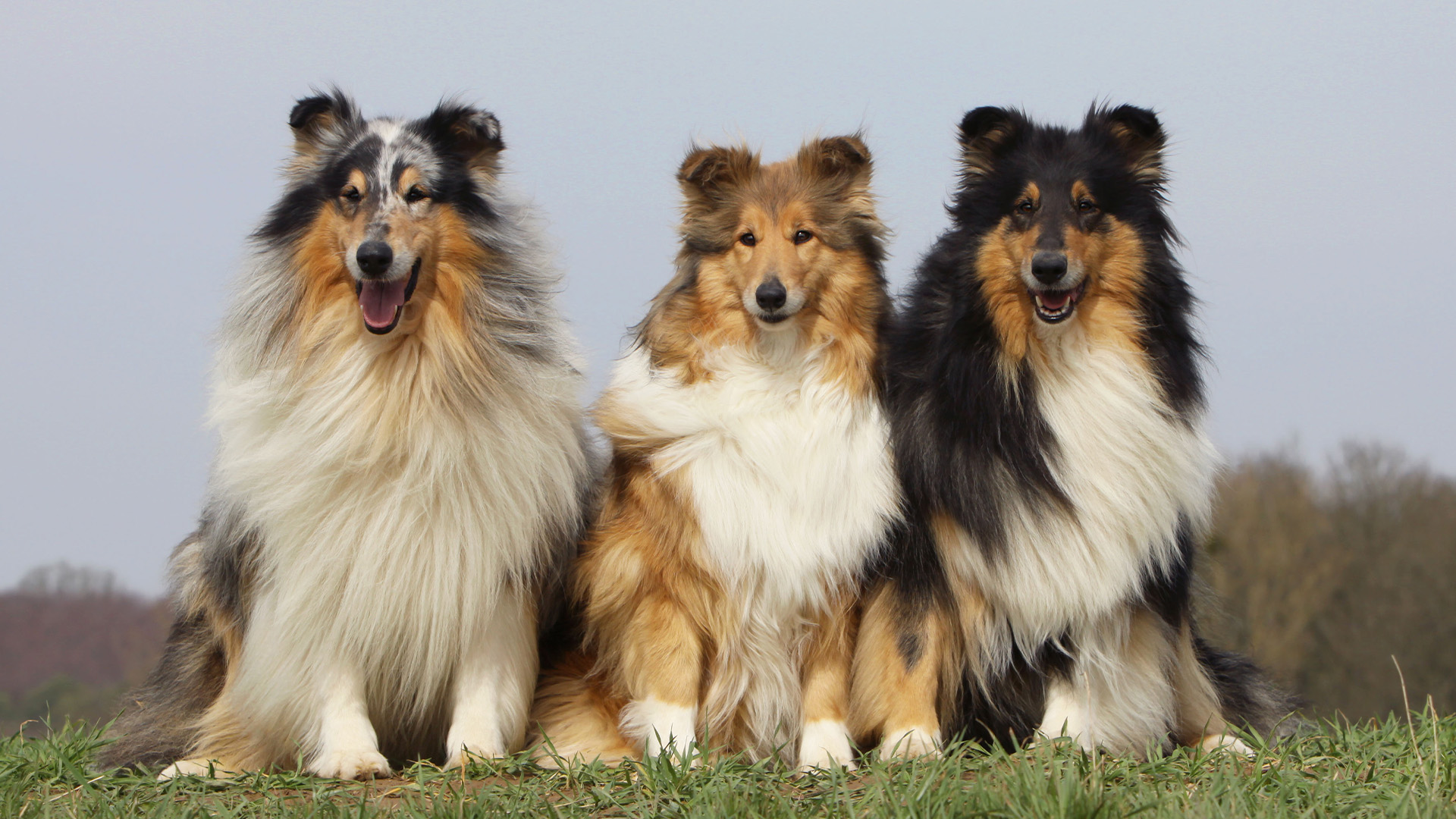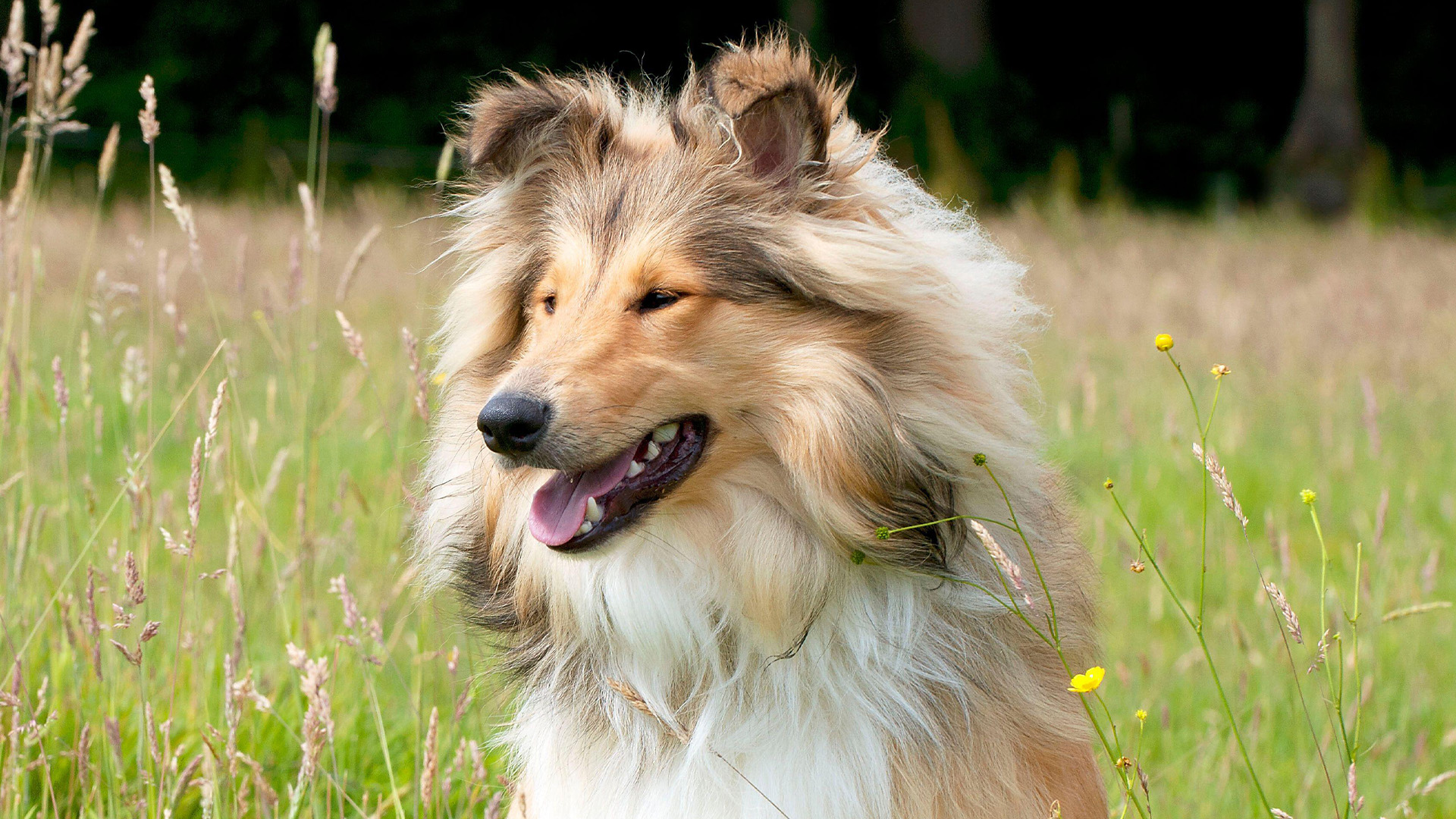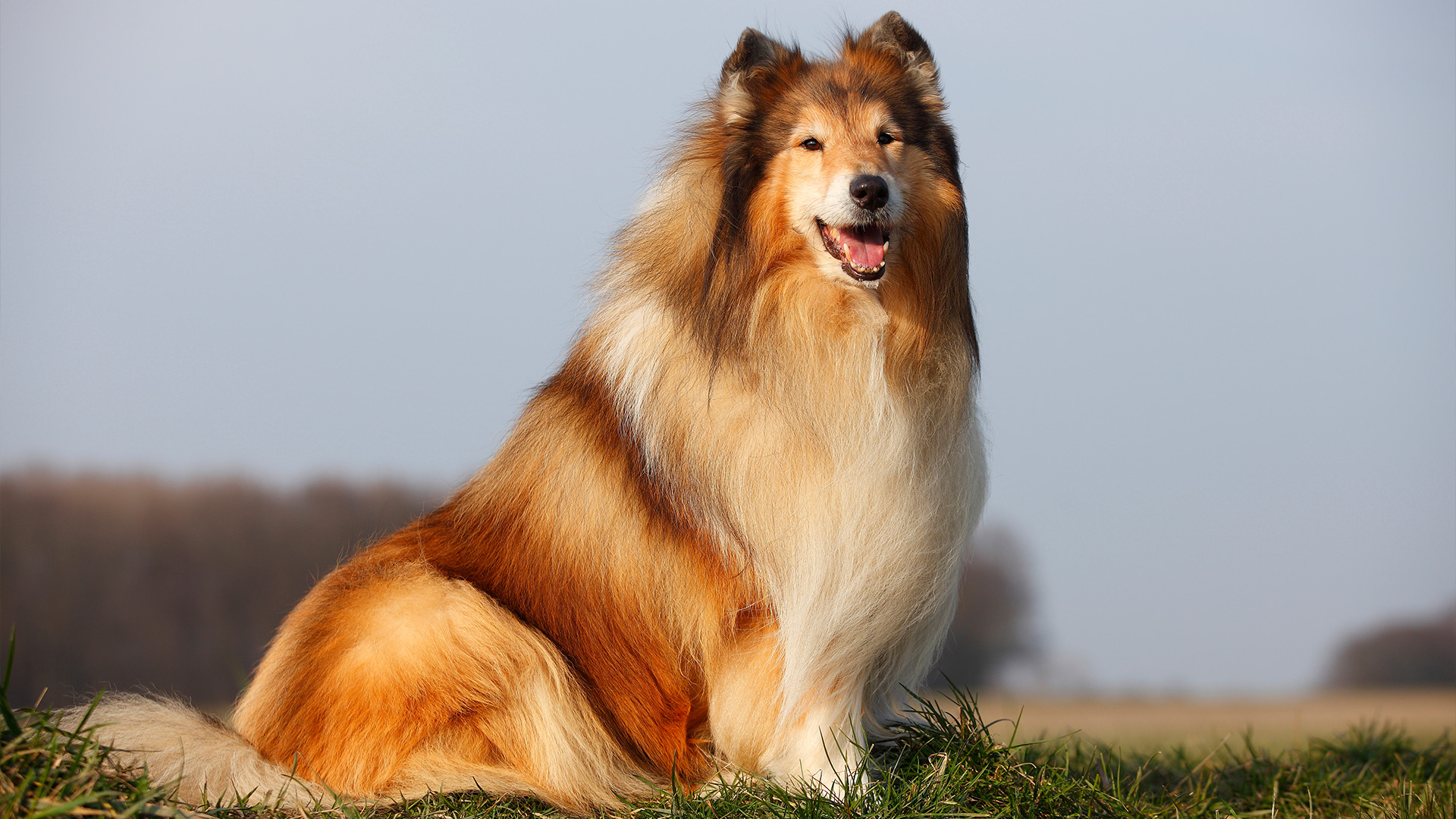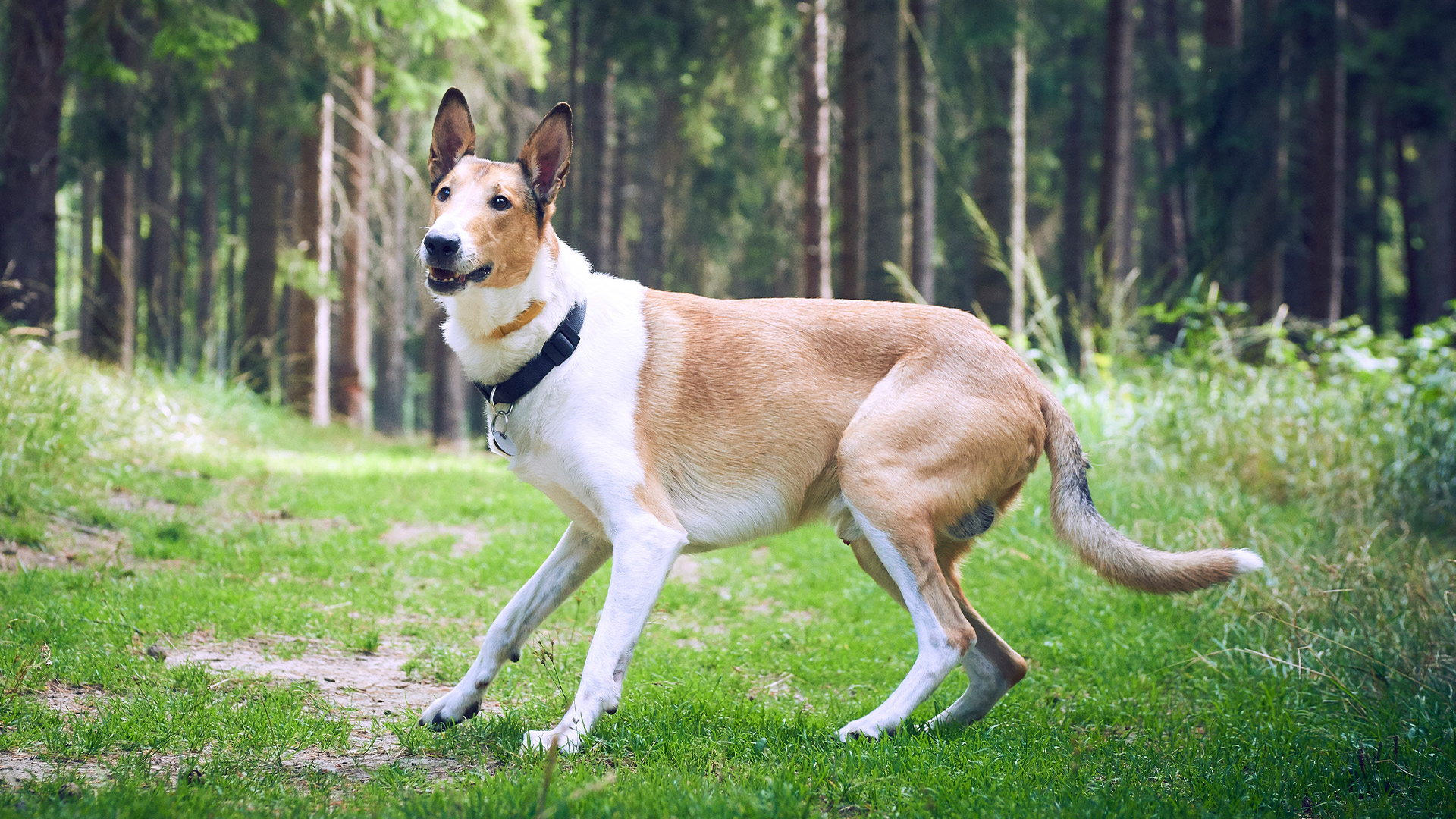Collies may not be as popular today but their affectionate, loving nature suggests they should be
Learn more about a breed that became popular thanks to the canine character Lassie


Life expectancy: 10–14 years
Size: 24–26 inches (male); 22–24 inches (female)
Coat: Double-coated, either long and rough or short and smooth
Temperament: Intelligent, active, gentle, friendly, protective
Exercise needs: Around an hour daily
Origin/native country: Scotland and Northern England
You’re sure to recognise a collie – the supposed all-American family dog that became popular thanks to the book, film and TV character Lassie. But this dog – actually bred for herding sheep in Scotland and Northern England – is only one type: a full-coated rough collie. The other – the smooth collie – looks very different because it has a much shorter coat. Yet both are utterly adorable.
As you’ll discover in his guide, both types of collies display very similar temperaments and both are hugely intelligent, responsive and affectionate. Neither are anywhere near as popular as they once were – even though Lassie continues to have principal on-screen roles – but, as expert vet Dr Lisa Coder helps to explain, that doesn’t mean you shouldn’t take one to your heart.
Do collies need a lot of exercise?
Collies have bags of energy so they need to be walked and played with each day to ensure they’re sufficiently stimulated both physically and mentally.
“As generally active dogs, they require a moderate and consistent amount of exercise for optimal health,” says Dr Coder. It’s suggested that you take them outside for at least an hour daily.
If they’re not exercised well, they can become bored and they’ll begin to display destructive behaviors such as chewing, digging or chasing. To that end, you should explore games such as fetch, something that is also great for bonding. It’s also worth exploring ways to build more fun into your dog’s routine but don’t worry – when they’ve had enough exercise, they can become something of a couch potato so it’s not all go, go, go.
Are collies easy to train?
These smart dogs must be trained.
“Early socialization is important, as is life-long learning,” Dr Coder says. Thankfully, given how clever they are – they rank 16th in canine psychologist Stanley Coren’s book The Intelligence of Dogs, which ranks the smartest dog breeds – they’re very quick to learn. They’ll be able to understand new commands with fewer than 15 repetitions and obey the first command at least 85% of the time.
Get the best advice, tips and top tech for your beloved Pets
“Collies are usually easy to train because they love learning new things often and they’re eager to spend time with their owners,” Dr Coder adds. Indeed, collies are so trainable, they can excel in agility and obedience competitions but the trick is to be consistent and to use positive reinforcement techniques.
Crucially, the more stimulating your training sessions are, the better you’ll find this breed responds.
“If collies become bored, they may start barking or creating mischief to entertain themselves,” Dr Coder continues. So mix up your training regime and even seek to vary the places where you train this breed (being careful when letting these curious canines off-leash). You may also want to try some great brain games for dogs.

Do collies make good family pets?
You’re not going to have too many problems with a collie. The main issue you may face is separation anxiety and occasional nipping when they’re excited, which is something you can work in training. But in general they are well-behaved, level-headed dogs who bond quickly and fit into family life exceedingly well.
“Collies are loyal, affectionate, and intelligent, and they enjoy spending time with their families,” says Dr Coder. “They are also known for loving children and getting along with most other pets and people, which makes them excellent family pets.”
Such is their gentle nature, patience, intelligence and trainability, collies have long been considered wonderful therapy dogs.
“They are sensitive in nature, and often can predict the emotions of their owners,” Dr Coder adds. They’re also protective of their families so they can be useful watchdogs too.
Why are rough collies not popular?
This is a commonly asked question and it relates to reports that the breed is at risk of extinction. According to The Kennel Club in the UK, the breed has suffered a “steep decline” in popularity and they’re now counted in record low numbers.
In 1979, there were more than 8,000 annual rough collie registrations in the UK but in 2022 that had fallen to 500. Bill Lambert, a spokesperson for The Kennel Club, said it was likely due to the breed requiring a lot of grooming and plenty of space.

Does that mean smooth collies are more popular?
Actually, no. If anything, smooth collies are suffering even more. Figures from The Kennel Club show the number of smooth collie registrations is in double-digits and there were as few as 29 registrations in 2024. It means the smooth collie is on an “at watch” list.
Do collies need a lot of grooming?
It’s true to say that rough collies require more work than a smooth collie.
“Rough collies have a long, luxurious coat that requires regular bushing and grooming,” Dr Coder says. “Rough collies will also lose their undercoat approximately twice per year and require extra brushing or deshedding at these times.”
Yet the same shedding occurs in the shorter coated smooth collies.
“Coat care is not different between the types, as both require regular baths and brushing,” she adds.
Even so, the amount of grooming needed isn’t hugely excessive. A few brushes each week when their peak-shedding is more than enough and you could always pick up one of the best vacuum cleaners for pet hair to deal with the shedding.
Wisdom Panel Breed Discovery DNA Kit | Amazon
Not sure exactly what breed your dog is? This kit screens for 365+ breeds – because knowing every detail about your dog helps you understand how best to care for them.
Collie health problems
Collies have a few health conditions owners should be aware of.
“Collie Eye Anomaly is an inherited developmental disorder that affects multiple parts of the eyes and usually results in blindness,” Dr Coder says. “Reputable breeders genetically screen dogs prior to breeding to ensure their dogs do not carry the gene responsible for Collie Eye Anomaly.”
Like many other purebred dogs, collies can also be pre-disposed to Progressive Retinal Atrophy (PRA).
“This can cause the retina to lose function over time and may lead to blindness,” Dr Coder explains.
Some collies also suffer from Multi-Drug Resistance (MDR-1), a genetic disorder that can affect the way dogs process certain drugs.
“There is a genetic test for this gene mutation, the results of which should be shared with the family vetn as they may adjust doses or avoid certain medications altogether,” Dr Coder says.
Finally, dermatomyositis is an uncommon skin disease that results in hair loss, skin crusting, redness, and scaling.
“It is usually seen at or before six months of age,” Dr Coder adds.
Should I get a collie?
Collies need space, indoor and out. They also require a good amount of grooming and you will need to spend time keeping them active each day. But because they’re intelligent, easily trained and wonderful family pets, the pros tend to outweigh the cons. You can have so much fun with a collie and, since they’re very affectionate, you can’t help but feel loved by them.
This book is the first of three that is designed to help every beginner, not only to understand your dog better, but also to know exactly how to get the best results, step-by-step, so that you can achieve a close, positive and trusting human-dog relationship.
Read next: Border Collie breed profile or Border Collie vs collie or Shetland Sheepdog vs collie

Dr. Lisa Coder graduated from the University of Missouri in 2013. Since then, she has worked in many different types of clinics, from equine, to mixed animal, to ER. She even served a few years with the United States Department of Agriculture as a public health veterinarian. She loves all animals and strive to provide a safe, comfortable, and compassionate place for the people and pets who make up our community family. Dr. Lisa and her practice Vital Animal Veterinary Clinic serves the greater Sioux Falls, South Dakota area, with compassionate care for cats, dogs, small exotic mammals, and reptiles. She is currently pursuing board certification in both types of exotic medicine. She has an absolutely brilliant staff, who supports her love of learning, teaching, and endeavoring to continually improve.
Edited by Georgia Guerin.
This feature was last updated in June 2025.

David Crookes has been a journalist for almost 30 years and he has written for a host of magazines, newspapers, websites and books including the World of Animals Annual, BBC Earth, Live Science, The Independent and Tom’s Guide.
Born in England, he lives with two cats but he’s also keenly interested in the differences between the huge number of dog breeds – in fact, you can read many of his breed guides that he’s written in collaboration with vets here on PetsRadar.
With a lifelong passion for technology, too, he’s always on the lookout for useful devices that will allow people to keep their pets happier and healthier, and provide them more time to spend together.
David has a degree from Durham University, as well as postgraduate diploma in journalism from the University of Central Lancashire.


